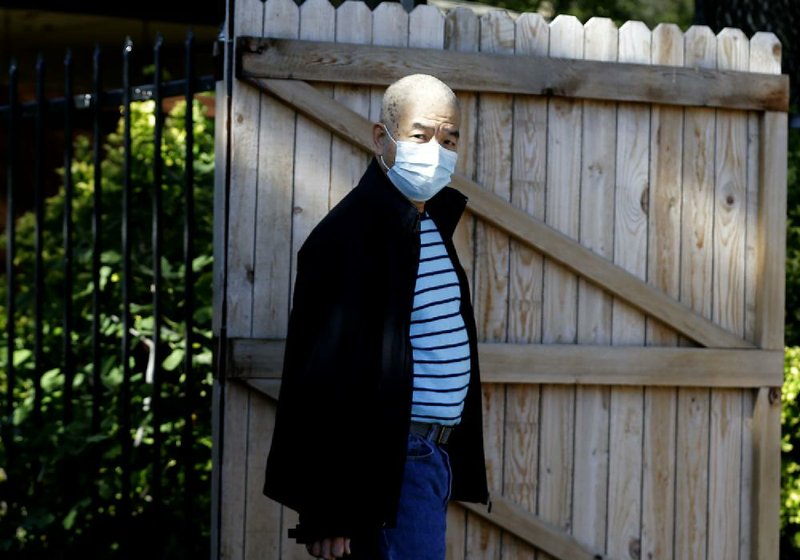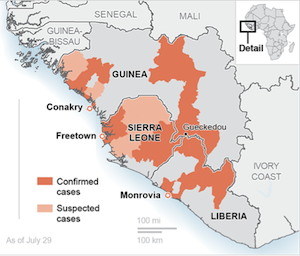DALLAS -- The condition of the lone Ebola patient to be diagnosed in the U.S. has worsened and is now deemed critical, the Dallas hospital that has been treating him reported Saturday.
RELATED ARTICLE
http://www.arkansas…">For LR student, Ebola close to home
Texas Health Presbyterian Hospital Dallas, where Thomas Eric Duncan is being treated, didn't provide any further details about his condition, and a hospital spokesman, Candace White, didn't immediately respond to emails and phone calls. The hospital previously said Duncan was being kept in isolation and that his condition was serious but stable.
Duncan traveled from Liberia to Dallas last month before he began showing symptoms of the disease.
Health officials said Saturday that they are monitoring about 50 people who may have had contact with Duncan for signs of the deadly disease. Among those are nine people who are believed to be at a higher risk. Thus far, none has shown symptoms.
Included in the group are those people who later rode in the ambulance that took Duncan to the hospital last Sunday, said Dr. Tom Frieden, the director of the Centers for Disease Control and Prevention.
On Friday, a hazardous-materials crew decontaminated the Dallas apartment where Duncan was staying when he got sick during his visit. The materials, including bedsheets, towels and three mattresses, were sealed in about 30 industrial barrels that were to be stored in trucks until they can be hauled away for permanent disposal.
Dallas spokesman Sana Syed said everything else in the apartment will be disposed of, including the carpet.
The family who lived there was moved to a private home in a gated community, where they are being carefully monitored. The city had been having trouble finding a place that would take in Louise Troh, originally from Liberia; her 13-year-old son; and two nephews.
The first Ebola diagnosis in the U.S. has raised concerns about whether the disease that has killed some 3,400 people in West Africa could spread in the U.S. Federal health officials say they are confident they can keep it in check.
The virus that causes Ebola is not airborne and can only be spread through direct contact with the bodily fluids of an infected person who is showing symptoms.
Duncan arrived in Dallas on Sept. 20 and fell ill a few days later. After an initial visit to the emergency room at Texas Health Presbyterian Hospital, he was sent home, even though he told a nurse he had been in West Africa. He returned to the hospital two days later, last Sunday, and has been kept in isolation ever since.
The hospital issued a news release late Friday saying that the doctor who initially treated Duncan did have access to his travel history, after all. It had said Thursday that a flaw in the electronic health records systems led to separate physician and nursing work flows and that the doctor hadn't had access to Duncan's travel history.
Hospital spokesman Wendell Watson said Saturday that he could provide no further details, adding, "We're still looking into the entire chain of events."
Information for this article was contributed by Emily Schmall and staff members of The Associated Press.
A Section on 10/05/2014

